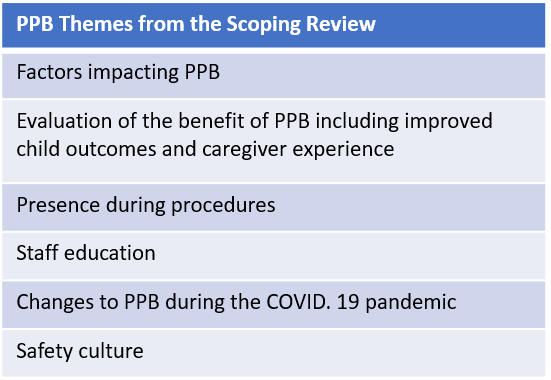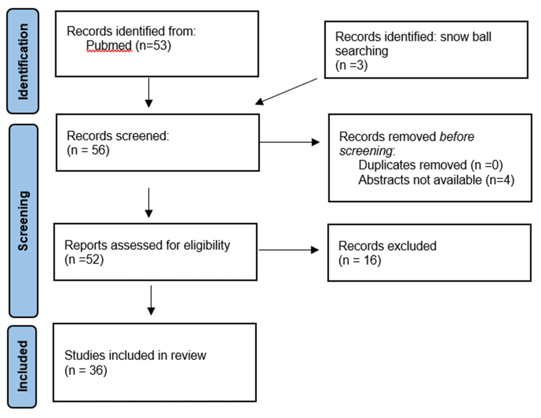Children with Chronic Conditions
Session: Children with Chronic Conditions 2
277 - Parental Presence at the Bedside of Children with Medical Complexity in Pediatric Care – A Scoping Review
Friday, May 3, 2024
5:15 PM - 7:15 PM ET
Poster Number: 277
Publication Number: 277.309
Publication Number: 277.309

jenny hayden, MB B.CH BAO, MRCPI (she/her/hers)
Complex Care Fellow
Sick Kids
Toronto, Ontario, Canada
Presenting Author(s)
Background: Parental presence at the bedside (PPB) has evolved to be a foundation component of quality child and family-centred care; however, gaps exist in our understanding of its impacts and experience. For children with medical complexity (CMC), hospital stays are frequent, unpredictable and often prolonged and their needs related to PPB may be unique.
Objective: This review explores the experience of PPB for CMC, their families and health care providers (HCPs).
Design/Methods: A scoping review was performed on studies retrieved from PubMed data base from inception to Oct 15th 2023 (outlined in Figure 1). All studies that related to PPB in the pediatric hospitalized population were included. Commentaries and narratives were excluded. Two authors read the articles and extracted the data. Data was synthesized and a narrative thematic analysis was performed.
Results: Fifty-three (53) studies were identified, with 36 meeting inclusion criteria. Included studies were published between 1989 and 2023, with 47% of these published after 2019.
Thirty-one (86%) studies looked at PPB in the critical care setting (Neonatal Intensive Care (15, 44%) and Pediatric Intensive Care (15, 42%)), 4 were in general pediatric inpatient areas (11%), 1 in the Emergency Department and 1 related to patient transport.
Six themes were developed (outlined in Table 1); (1) factors impacting PPB (15, 42%), evaluation of child and caregiver outcomes of PPB (11, 31%), (3) PPB during procedures (3, 8%), (4) staff education (3, 8%), (5) changes to PPB in response to COVID-19 pandemic including limiting family presence (3, 8%) and (6) safety culture (1). No study looked specifically at PPB in children with disabilities, CMC or parental absence.
Conclusion(s): There is limited information related to CMC and PPB and no information regarding parental absence, possibly signaling that the experience is different for these families. How to support families of CMC in relation to PPB needs careful consideration in both future studies and clinical practice. PPB should encompass a flexible child and family-centered approach, rooted in principles of trauma-informed care with a focus on the impact of the child e.g. parent/caregiver attachment, emotional regulation and mitigation of trauma.


